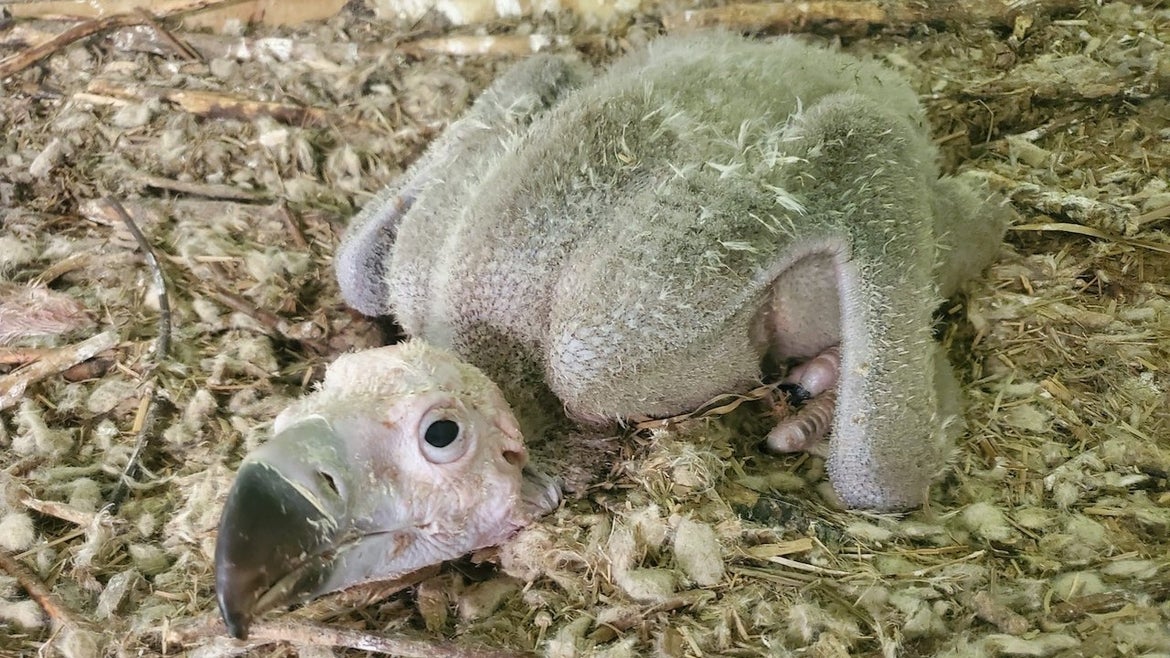The zoo's Bird Team has been trying to get the birds, Anubis and Amana, to produce offspring for the last eight years.
The staff at Zoo Atlanta are in celebration mode this week as there is a new addition to the family. Lappet-faced vultures Anubis and Amana are now proud parents of a little chick.
They’ve been trying to get the birds to produce offspring for the last eight years on a breeding recommendation from the Association of Zoos and Aquariums’ (AZA) Lappet-faced Vulture Species Survival Plan® (SSP). Anubis, 16, and Amana, 18, have previously produced 12 infertile eggs.
According to the press release, the process of getting this chick was quite extensive. The vital nest-building process, which is essential for the pair and their bond, involved the Georgia zoo's Bird Team constructing a nesting platform in a designated vulture indoor area. From there, they would be better protected.
Twigs and sticks were available to the birds daily, which helped them add to and complete their nest. In the five-month period, three eggs were produced. Only one of those eggs was fertile.
The website states, “Because Amana and Anubis were inexperienced parents, the Bird Team removed the egg to an artificial incubator and replaced it on the nest with a 'dummy' egg that would allow the vultures to continue to engage in the important behavior of incubation."
The chick hatched in April, and after 10 days of hand-rearing by the staff, it was returned to the parents.
In a statement about the birth, Jennifer Mickelberg, Ph.D., Vice President of Collections and Conservation, said, “The birth of an endangered species is always an occasion for celebration, but this hatching represents a particular success for Zoo Atlanta"
She added, “We are always thrilled to see first-time animal parents succeed. This is also a testament to the enormous commitment of our Bird Team, who have worked over a period of many years to provide opportunities and innovations to help this pair flourish.”
This hatching is especially important as lappet-faced vultures are classified as endangered by the International Union for Conservation of Nature (IUCN). Their main threats are intentional and accidental poisoning, and also collisions with human-made structures. In the past three decades, the species has declined by over 80 percent.
The new chick is healthy and gaining weight, but it is not yet visible at the zoo. But those interested can follow its journey on the Zoo Atlanta Instagram and Facebook pages.






